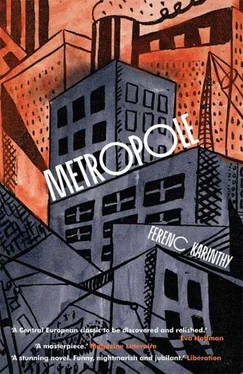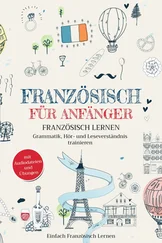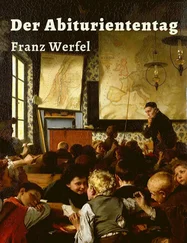His next recourse was to identify modes of address, hoping to catch some of them in Tyetye’s speech. He listened intently to everything but however he tried there was only one sound he could pick out: klött or klütt , that was if he had heard it properly, recalling that on his first major excursion, at the market hall, the driver, who had taken him for an unemployed lout and had called him over to stack packages, had addressed him using the same word, as if to say, Oy! You! It was just that here it seemed to be the only form of address, a simple universal instead of the various alternatives on offer elsewhere, such as tu, vous, you, mister, darling, ducky, sir, madam, miss, comrade, mate, buddy and so forth. This was of little or no help. If the same form was directed to men, women, children and old people on every social level, with no hint whether the relationship was superior or inferior, the information, from a linguist’s point of view, was not worth much. There was nothing he could do with it, no conclusion he could draw, little he could learn: it was a blind alley.
It was a similar problem with the form of greeting — parasara or patarechera . This was another term he recalled from earlier, at the hotel entrance, for example, where the fat man in the gold braid would mutter it while holding open the swing door: he said it morning, noon and night, when he left and when he returned. He kept saying it. It was another piece of information, useless from the linguistic point of view, a verbal unit incapable of being split into constituent parts.
Then he looked for common idioms, such as please, excuse me, danke, bitt, etc. It occurred to him that he himself could elicit some of these. If, for example, he bumped into someone in the street, or he invited someone to step on the metro escalator before him, the other person would be likely to reply with the equivalent of sorry, or thank you… He got nowhere at all with personal pronouns though he spent long enough on them trying to isolate the appropriate words and work out how I or you or he or she might sound. He certainly tried hard enough, gesturing and asking the same question time and time again but however he quizzed Dededé the girl seemed not to understand at all. She simply shook her head and blew out smoke with an expression that said there was no point in continuing. Why was she being so negative now when she had been so kind and prepared to help before? It might be, thought Budai, that there were no personal pronouns here. It was theoretically possible that they addressed each other in a kind of nursery fashion, using only the third person singular that stood in for all else. That was the way children talked about themselves: Johnny eating, baby walking, walkies. There were some primitive peoples where such rules operated. But how did a city with skyscrapers square with stone-age inflections?
He hadn’t really given the matter a thought but he soon realised through bitter experience how hard it was to settle on specific meanings and how difficult it was to set up a situation in which only one kind of reaction was possible. He either received answers that were too long and impenetrable or heard something completely different every time he asked the same question, words or mime. Take simple gestures: you wouldn’t imagine the range of meanings they seemed to convey! Western Europeans moved their heads horizontally when wishing to indicate a negative, Greeks threw their heads back. Bulgarians nodded and called you by spreading their arms wide. Eskimos supposedly rubbed noses instead of kissing. There was a lot of this kind of thing — but who could explain the meaning of gestures to him here?
But his mind was tireless and never stopped working on ever newer schemes. The best of them was that he should concentrate on and collect public texts and notices where the meaning was clear and unambiguous or could be rationally worked out. For example, there was the word that appeared on the fronts of taxis to which there could be no obvious alternative. Or the notice that appeared on the yellow barriers of metro entrances. However it might be pronounced it seemed unarguable that the word should mean ‘underground railway’. It was the same with out-of-order public telephone booths, from which he had tried to steal the directory before the policeman appeared. Or the sign on closed shops, the short single word that should mean closed. Besides these he noted down words he guessed might mean restaurant (or inn or grill or diner) or buffet (canteen, café, bistro) as well as working out the letters involved in laundry (or possibly cleaner, dry-cleaning, launderette).
Shops promised to be a productive hunting ground, displays and stalls all showing names of goods along with their prices. In this way he collected words that should signify establishments such as florist, ironmonger, wood and coal merchant (unless the word simply said domestic heating or some such thing), carpets, furniture, crockery, glassware, chandelier, musical instruments, fabrics, off-the-peg (or ready-to-wear), haberdashery, toys, sports equipment and so on. These too involved a margin of error of course. A shop sign would after all probably also contain the name of the owner and an address, or some generic trade name, such as Weave (a carpet or a fabric shop), Kristal (glass wear, crockery, light fittings), Houseproud (items to do with home cleaning and maintenance) or Textile (clothes, materials, etc) as elsewhere.
It was the grocery shop displays that were most useful. If an item was accompanied by a label and that label showed something other than the price, it followed that the other thing must be the name of the product. He was particularly interested in goods such as oranges, lemons, bananas, sugar, coffee, tea, cocoa and chocolate whose names tended to be the same, or pretty similar, wherever one went, that is to say, international words with a local variation. Later he had to admit that even this method was not foolproof, since the labels might say things like cheap, fresh, sale, offer, top quality, delicious, buy now, special, must go or any other choice phrase by which shopkeepers recommended their wares to customers. He put a question mark next to them in his notebook.
Doing his rounds he noted down the following more-or-less identifiable words on signs: cloakroom, till, drinking water (or possibly not drinking water), no entry, bus stop, take care, freshly painted, do not walk on the grass, road works, pedestrians other side (that would have been a pretty good guess if it was right), high-tension, or danger do not touch, that kind of thing.
Once he had collected enough of these he planned to ask Ebébé to read each of them out loud to him. But the first time he tried the girl happened to be in a bad mood, thoroughly tetchy, not even wanting to go up to the eighteenth floor with him. Something must have offended her: she ignored him in the lift, turned her head away and kept pressing the buttons in an apathetic manner. Budai would not be deterred though and patiently stayed in the lift as it went up and down, waiting for her to take her brief smoking break upstairs. But she had hardly taken a puff or two of the cigarette and he had only said a couple of words when tears sprang to her eyes, eyes that were anyway red, and she took out a handkerchief and wept.
Budai looked at her in confusion. How to console her when he had no idea what troubled her or hurt her? He had no time to occupy himself with such matters, he couldn’t allow himself the liberty, he felt. He had no time, he had to be cold and matter-of-fact, selfish indeed, ruthless, for this was his only chance. He could only devote as much attention to the girl as would maintain their relationship, the rest was a waste of energy. And if she was labouring under some misapprehension about their relationship, well, it was up to him, he simply had to exploit it.
Читать дальше












